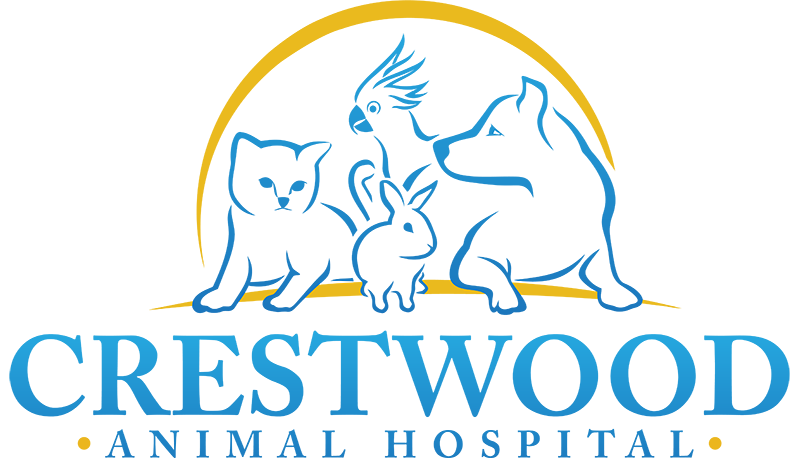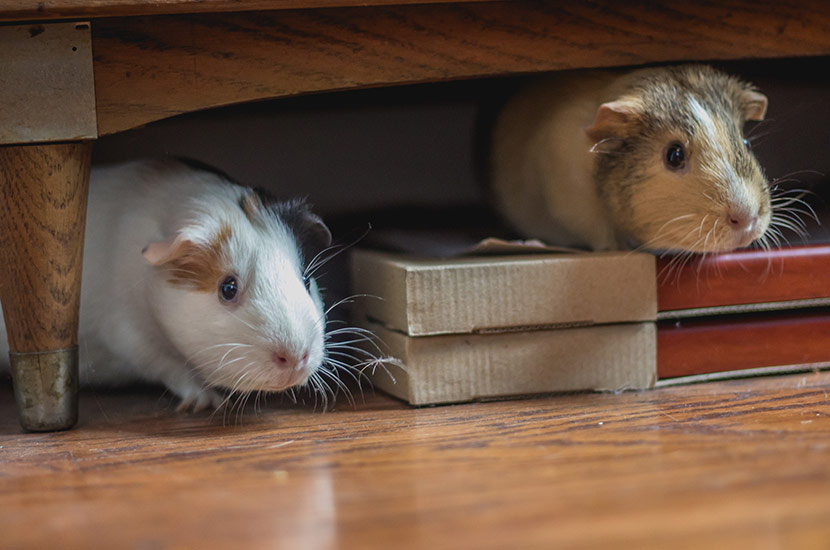by Katy Parr, DVM
Similar to humans, guinea pigs cannot make their own vitamin C so they must obtain it from their diet. Also known as scurvy, this disease is characterized by a breakdown of connective tissues in the body which can cause abnormalities such as arthritis, skin sores, and dental disease. Since vitamin C is present in small amounts in many foods, this is a disease that tends to occur slowly over time, as the lack of vitamin C builds up over the long term. You may not notice a problem right away, depending on your guinea pig’s diet, health status, and age.
Some pelleted diets have added vitamin C, but not enough. Several factors can be involved in this. Storage in warm conditions or in direct sunlight can cause breakdown of the vitamin. Also, the vitamins in the pellets naturally break down over time, so older bags contain less vitamin C than newer bags. Offering vitamin C in the water is not recommended because vitamins break down quickly when exposed to light. Vitamins in water also encourages bacterial growth, which can be detrimental to your guinea pig.
Once deficiency develops, it can be treated with vitamin C supplementation, but some of the side effects may persist for the rest of the guinea pig’s life. Dental disease is a lifelong and potentially fatal problem, which requires tooth trimming periodically (monthly). Arthritis is painful, but can be controlled long term with pain medication and supplements from your veterinarian. Gastro-intestinal stasis (bloat and constipation) is a condition that can come on suddenly, and is often life-threatening, requiring immediate veterinary care.
The best way to ensure that your guinea pig is receiving enough vitamin C is to give it a 50mg tablet twice daily. Oxbow vitamin C tablets are formulated especially for guinea pigs, or you can obtain sugar-free children’s chewable tablets from your local drug store. If your guinea pig will not eat the tablet, there are several ways to entice him. Breaking it in half releases the aroma; making it more appealing. Try crushing it on top of wet greens, or a favorite food item. You may also crush it with water and give it by mouth with a syringe. Powdered vitamin C crystals can also be sprinkled on moistened greens if your guinea pig will not eat tablets. Certain greens such as cilantro and parsley are especially high in vitamin C (higher than oranges believe it or not!), so they make great healthy treats.

